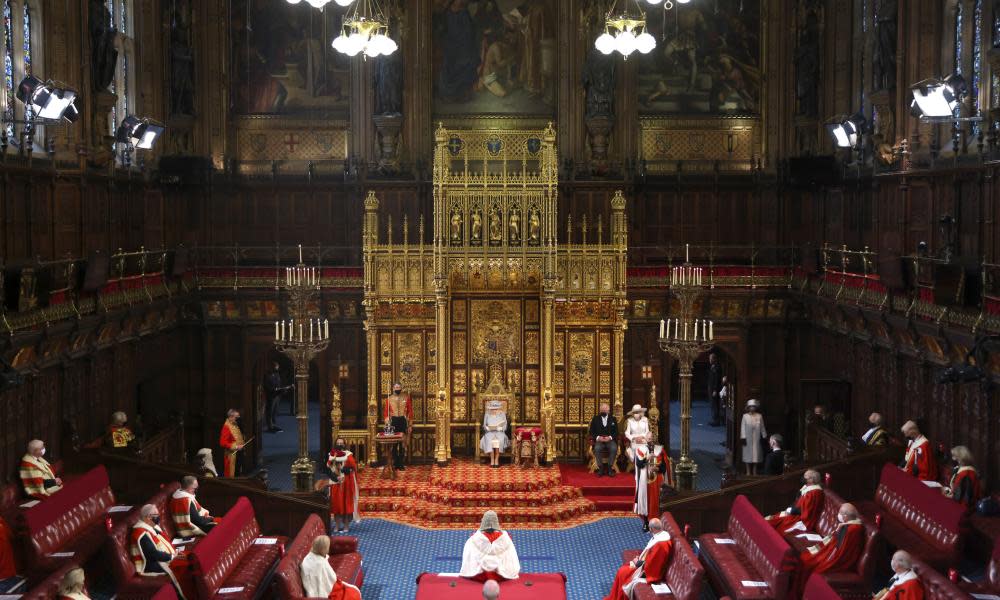The Guardian view on criminalising protest: the Lords must take a stand

The attempt to evade parliamentary scrutiny over curbing the right to protest should be resisted
Checks and balances are built into every democracy. On Monday, the House of Lords has the chance to show how much this matters and why. Amendments added to the police, crime, sentencing and courts bill by the government late last year would restrict the right to protest beyond the measures already debated by MPs, and criminalise trespass. The new powers granted to the police by these extra clauses, along with sentences of up to a year for offences such as obstructing “nationally significant infrastructure” including roads and airports, are an assault on civil liberties. Freedom of expression, including the freedom of assembly, is central to a liberal democracy. Governments often need to hear what protesters have to say. For ministers to attack them is particularly worrying at a time when some senior Conservatives are pushing back against environmentalism more broadly, as well as against anti-racist initiatives.
What ministers have cynically done is attempt to bypass parliamentary scrutiny. Priti Patel, the home secretary, added 18 pages to the bill in late November that had not been there when MPs voted for it in July. Unlike the rest of the bill, however, where the Lords can merely send amendments back to the Commons to be reconsidered, because the latest amendments were introduced in the upper house, they will fall if peers vote against them. This presents the second chamber with a rare opportunity to reject some of the most draconian elements of this legislation, and also to endorse the role of parliamentary scrutiny.
Last year, peers warned of a drift towards “government by diktat”. A committee report pointed to the democratic deficit caused by ministers’ increasing reliance on secondary legislation and guidance over primary legislation and the robust scrutiny that goes with it. The peers argued that the correct balance between parliament and the executive had been lost, and rejected explanations that relied on the unique circumstances produced by Brexit and the pandemic. The relationship between the government and parliament, they said, “must be reset: not restored to how things were immediately before these exceptional recent events but reset afresh”. Monday’s vote is a test of whether peers will stick by their recent demand for the government to “stand ready to accept new methods of scrutiny and of holding them to account”.
Labour has yet to reveal how its peers will vote on the amendments, though the then shadow justice secretary, David Lammy, last year described the bill as “a mess”, and criticised its attack on the right to protest. Sir Keir Starmer should now come out strongly against the added measures, on grounds of their illiberal intent and also the undermining of parliamentary process that their introduction in the Lords represents. But the rejection of this brazen attempt to remove human rights from citizens should not just be left to the government’s political opponents. Next week is an opportunity for everyone in the upper house who believes in basic democratic freedoms to unite against a government that, with this and other measures such as its nationality and borders bill and compulsory voter ID, has revealed a disturbingly repressive face.

 Yahoo News
Yahoo News 
